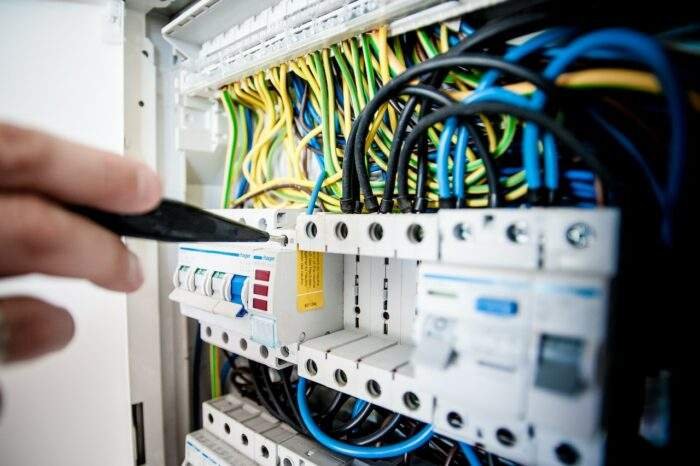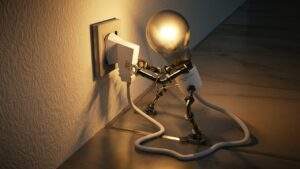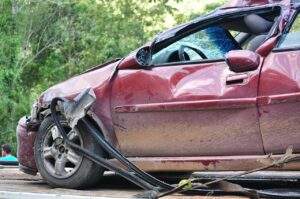The Dangers of Outdated Wiring – Why You Need to Upgrade

If you have an older home or a commercial building with outdated wiring, it could pose serious safety hazards. It can cause various problems, including electric shocks and electrical fires.
Homes built in the 1960s and ’70s used aluminum wire instead of copper due to high copper prices during wartime. This type of wiring is considered a safety hazard because aluminum corrodes, creating a fire risk.
Fire Hazards
A fire hazard is one of the most significant risks associated with faulty or outdated wiring. Most electrical fires in homes and commercial buildings can be traced back to obsolete or damaged wiring. These fires often start due to loose or faulty connections, which spark or arc across insulation and other materials. The fires then spread rapidly, causing a fire that quickly takes over the entire building and puts everyone at risk.
Older wires typically have lower amperage, meaning they cannot meet modern power demands. They may be unable to supply enough electricity for appliances such as wide-screen televisions, computers, and air conditioners, which require much more power than older home electronics. Using too many energy-demanding devices at once can overload the circuits in older homes and cause them to overheat, igniting a house fire.
If you are concerned about your wiring, look for signs of an electrical fire, such as flickering lights, constant breaker tripping, and shocks when touching appliances. Also, check the maximum recommended wattage of light bulbs for each fixture, as using too many can increase your fire risk.
In addition to reducing your fire risks, upgrading your outdated wiring can help you sell your property in the future. Homebuyers always look for homes with up-to-date electrical systems that offer peace of mind and safety. An outdated electrical system can deter prospective buyers and reduce the value of your property.
Electric Shocks
Daily appliances and devices require a certain amount of power to work correctly. If the wiring is outdated, it will not be able to supply that much power, and this can cause issues like frequently tripped circuit breakers and blown fuses. You may also experience shocks or notice that the outlets and switches are hot to the touch, or you might find that the wires are frayed and present a fire risk.
If you have old aluminum wiring, you should be especially careful. This type of wiring is considered a fire hazard because the metal components in receptacles and switches will become energized if they come into contact with the hot wires. A qualified electrician can resolve this issue by adding copper connectors, and pigtails, to your breakers and receptacles.
Flickering lights, frequent circuit breaker trips, and electrical shocks are all signs you need to upgrade your home’s wiring. This job should be considered, as it is a significant fire hazard and can put you and your family at serious risk. Upgrading your electrical panel can improve safety and increase your home’s value. It’s an investment that is well worth it!
Circuit Breaker Trips
If you’re experiencing frequent circuit breaker trips, it may be time to upgrade your wiring. Often a breaker will trip when it receives more electricity than it’s designed for, which can cause overheating and potential fire hazards.
Another issue with outdated wiring is that it can cause power surges, damaging any electronic device plugged into an outlet. The waves can also lead to data loss, security breaches, and other costly damages.
A GFCI is an excellent solution to reduce electrical surges in your home, commonly caused by old wiring. The GFCI will detect a power surge and cut off the flow of electricity to prevent overheating and fires.
Suppose you notice your circuit breaker frequently trips. In that case, it’s likely because there is too much demand on the circuit, either because you have too many widgets plugged into one course or because your appliances are drawing too much electricity. A professional can help you upgrade your electrical panel, giving you more circuits and allowing you to run high-wattage machines safely.
High Electric Bills
If your home uses more electricity than usual, even when you aren’t running any appliances or lights, it could be a sign that your electrical wiring needs to be replaced. Many homes still have old ‘knob and tube’ or aluminum wiring isn’t up to powering modern devices. These older systems are designed for a lower electrical load than today’s energy requirements. This can result in the circuit breaker frequently tripping or, at worst, leading to a fire.
Another reason for a higher electric bill could be that your household electronics are draining your energy without your awareness. This is often a problem with newer devices that have to “sleep” when not in use, like smart home gadgets and Echo devices or appliances that draw energy even if turned off, such as air conditioners and heaters.
This is a problem because these devices are usually the biggest electricity consumers in your house or rental property. Over time, this can cause your electric bills to spike due to the constant discharge of current through the wires and socket outlets. You can resolve this issue by ensuring you have enough outlets, upgrading to more energy-efficient appliances, and getting your wiring checked and updated by a professional electrician.






